
3 October — Launch at Topping & Co., Edinburgh
4 October — In conversation with Dr Dominique Carlini Versini, Collected Books, Durham
5 October — In conversation with Brian Dillon, Libreria Bookshop, London
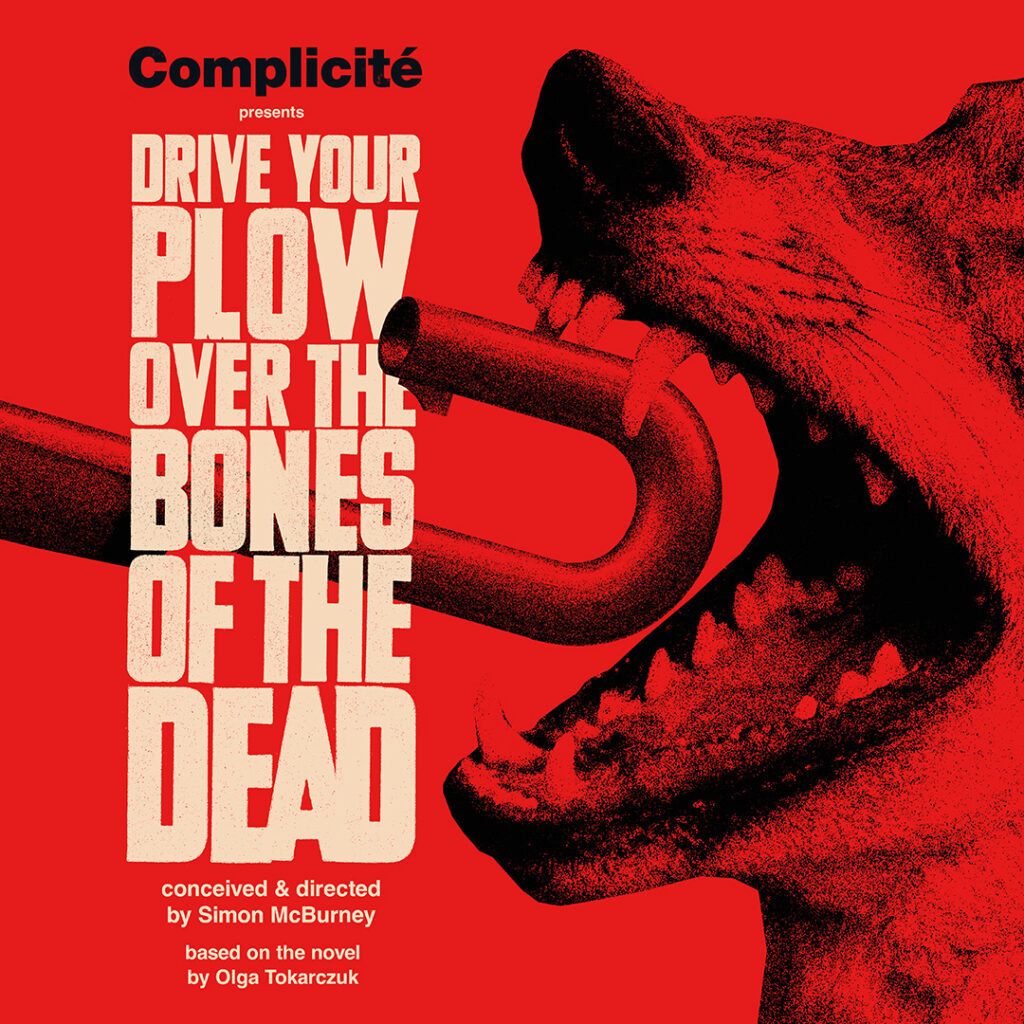
Enthralling audiences and critics alike since it opened, Bristol Old Vic On Screen brings you Simon McBurney’s incredible staging of Olga Tokarczuk’s acclaimed novel in HD, brilliantly filmed live at The Lowry, Salford in front of a capacity audience.
Tokarczuk’s controversial, violent, genre defying novel – part thriller, part comedy, and part blistering poetic manifesto for the rights of animals and the environment – caused an uproar in its native Poland upon publication.
In the depths of winter in a small community on a remote Polish mountainside near the Czech-Polish border, men from the local hunting club are dying in mysterious circumstances and Janina Duszejko – an eccentric older local woman, ex-engineer, environmentalist, devoted astrologer and enthusiastic translator of William Blake – has her suspicions. She has been watching the animals with whom the community share their isolated, rural home, and she believes they are acting strangely…
This exclusive on demand film features the production’s original cast including Kathryn Hunter as Janina.
To book your tickets, please use the following link: https://bristololdvic.ticketco.events/uk/en/e/drive_your_plow_over_the_bones_of_the_dead__on_demand/fitzcarraldoeditions
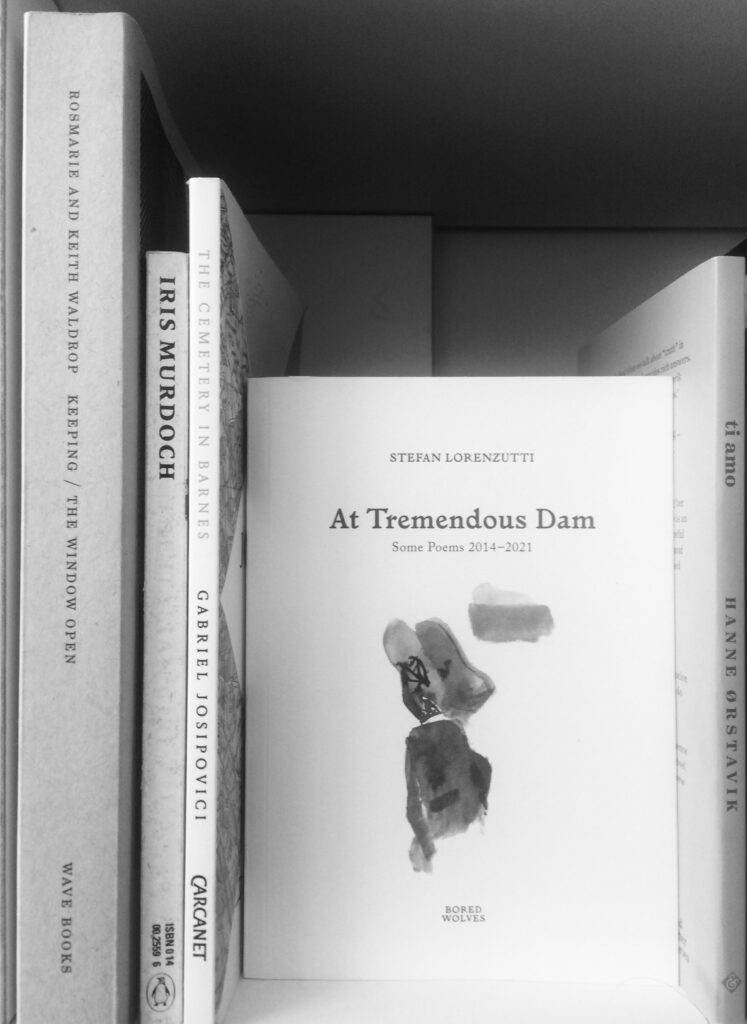
Keeping / the window open: Interviews, statements, alarms, excursions by Rosmarie and Keith Waldrop, edited by Ben Lerner (Wave Books, 2019)
I bought this as a present to myself for my birthday a month or so ago. I wanted to learn more about the Waldrop’s publishing project: how they co-founded Burning Deck in 1961, a flexible structure for experimental poetry and prose, then kept it alive – publishing pamphlets for the next fifty-six years. Keeping / the window open is fascinating and instructive on small-scale editing and publishing. But it’s also a vital archive of work on translating, critical writing, poetry, prose, prose poetry, the line, the novel, and the inter-relations between all the above. I am nowhere near reading through all of it. But there is one line I’ve already copied out and pasted above my desk: something Keith says in an interview. I read it and found in it a new kind of permission: ‘…you don’t have to decide whether you’re going to “think” or “feel”’. It was amazing to read that stated so directly and so simply. He goes on, completing the thought: “‘…you don’t have to decide whether you’re going to “think” or “feel”, to use high diction or low diction, or whatever. I mean you can combine these things – any things – if you can do it (it’s a problem of form).’
The Italian Girl by Iris Murdoch (Penguin, 1964)
I recently bought this second-hand, hence the sun-faded spine: one of the few remaining Murdoch novels I hadn’t read. As is in all her books, in The Italian Girl, there’s a collection of characters placed in their starting positions, each one located and to some extent defined by the power they seem to hold or don’t hold over the others. Edmund, the novel’s focus, is returning home for his mother’s funeral (the book has this amazing sub-title: ‘A Dazzling Tale of Love For Mother.’ ) At first slowly, then more dramatically, new alliances form and break down, characters are contrasted then bound together, and everyone starts to move. By the end, what’s taken place is this totally unforeseen, transformative rearrangement. I love many things about Murdoch’s novels, among them how all her characters think. About how to live among other people, how to exist as their own complicated selves, how to see others clearly: as complex, thinking-feeling people in their own right. For Murdoch, these big ethical and political questions are never the reserve of the educated or the leisured classes: as in real-life, they concern everyone, animals included. But even if I weren’t into this aspect of her work, I’d recommend The Italian Girl for its description of Otto – Edmund’s physically huge elder brother — eating great fistfuls of ‘herbage’ grabbed in from the garden, mint and marjoram mixed with grass and groundsel. Like a cow, or an elephant.
The Cemetery in Barnes by Gabriel Josipovici (Carcanet, 2018)
The Cemetery in Barnes was shortlisted for The Goldsmiths’ Prize the year it was published. Josipovici is among the living writers whose innovations in prose I think about most. I kept this short novel, along with the earlier, sparer, Everything Passes (2006), and the even earlier Contre-Jour (1998) within reach over the past few years. What fascinates me about these books is how they treat the novel spatially — as a composition which of course must run forward in time, but can also open sideways, forming parallel tracks. The Cemetery in Barnes seems almost to fold back onto itself or into itself through its use of refrain. We listen to very different kinds of music – the three of voices of the novel repeat the structure of an opera by Monteverdi. In contrast, the writing of The Long Form was informed by Whitney Houston’s ‘My Love is Your Love’, which may or not may not sound unlikely, depending on your tastes. But is nevertheless true: I listened to the track endlessly. Not for the sentiment of the song, exactly, but for the bounce and carry of the bass. For the way the lyrics get handed back and forth over the top of it. Venturing something. Then passing it back, only now with a slight modification, a small shift in emphasis. This for me is Josipovici territory, and possibly what grounds his long-term interest in translation — The Cemetery in Barnes is about a translator who moves from to London to Paris and then to Wales. The characters like the narration keep falling back into repetition – but every re-saying of what has already been said the novel releases something new.
At Tremendous Dam: Some Poems 2014-2021 by Stefan Lorenzutti (Bored Wolves, 2021)
Bored Wolves is a great, contrary name for a wholly unbored and unboring small press. This collection is by its co-founder, Stefan Lorenzutti, who runs the press with his partner Joanna Osiewicz-Lorenzutti, out of ‘Kraków and the Polish Highlands.’ I discovered their work thanks to two former students who recently published their own first collections with Bored Wolves (Sweaty Leaves by Petter Dahlstrom Persson and Bundle by Linus Bonduelle with drawings by Pommelien Koolen). The books are always visually interesting – a feature part explained by the fact that they tend to publish poets with their own parallel image-making practices, as well as new collaborations with artists. Lorenzutti’s poems share the some of the qualities I’ve come to associate with his lively, unpredictable list: an attentiveness to the intense colours, atmospheric conditions, textures and materials of everyday life; strange new precisions that give way to humour then unexpected sites of vulnerability. These are poems that make life feel weird, abundant; basically unfathomable but definitely worth living.
ti amo by Hanne Ørstavik, translated by Martin Aitken (And Other Stories, 2022)
I received this slim book as part of my subscription to The Republic of Consciousness – from whom I receive a new book by a different small press (in the UK and Ireland) each month. Ørstavik’s ti amo arrived at the start of the year. I read the backcover and immediately put it away on the shelf. Thinking: a novel about someone else’s loss, or rather preparation for loss, and for grief, is truly the opposite of what I want to read right now. But then a close friend read it, and she found it extraordinary. She gently suggested that I might find something in it, too. She was right: from the very first page, the first sentence, there’s this honesty of voice. A voice weighted with dread and waiting but also shaky with love and wonder. The novel is described on the back as ‘very hard and very beautiful.’ It is very hard. But, somehow, without this being in any way tritely or easily achieved, it is also very beautiful. A magnificent translation of a life-companion of a book.

23 March — In conversation with Thomas Legendre at Dormouse Books, Belper
29 March — In conversation with Sophie Mackintosh at Blacwells, Manchester
30 March — In conversation with Amelia Abraham at London Review Bookshop
26 April — In conversation with Lucia Osborne Crowley at Daunt Books, Marylebone. Link tk.
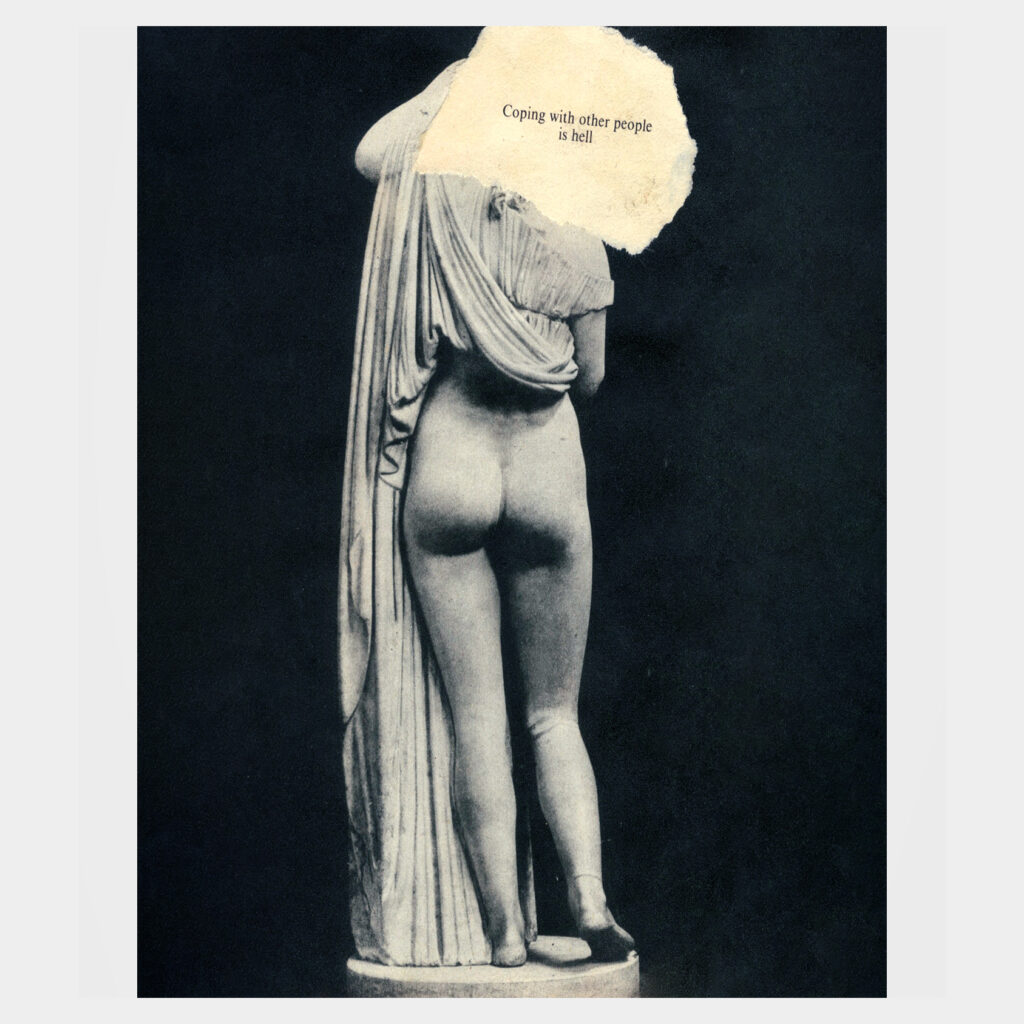
Polly Barton, author of Porn: An Oral History, publishing on 16 March, shares her cultural highlights of the last few months. To read an extract and pre-order the book, please visit our website.
BOOK
Aftermath by Preti Taneja
I want to recommend this book with everything I have, yet I’m struggling to think of anything I am comfortable committing to saying about it – which I feel is probably testament to just how sui generis it is. Writing from a place where the concept of truth itself feels shattered (the aftermath of the London Bridge stabbing of 2019, where the author was acquainted with both the attacker and one of those killed), yet still determined to resist the compulsion to silence imposed upon racialized communities, Taneja manages to set out the shattering of her psyche on the page in a way that is both an accurate map of trauma and a scalding and comprehensive critique of the system in which such trauma is permitted to occur.
POETRY
Constructions by Joshua Calladine-Jones
While in Japan, I thought relentlessly about the non-native English I was surrounded by at my language school – and whether there was any way for me to address it in writing, as someone who grew up with English as a first language, in a way that acknowledged the relationships at play and didn’t become appropriation or exercise in arrogance – and so discovering Constructions (and its sequel, Reconstructions) recently was a big deal. Within the realm of these pages – whose governing bodies are transcription software, subtitling and language lessons – non-native English is legitimized and becomes sole (albeit polyphonic) tongue. The result is a cross-section of the mind in its perpetual and ever-frustrated attempt at self-expression, an interrogation of the power dynamics that regulate this process, and a poignant and human rendering of digital and linguistic alienation and uncertainty.
FILM
All the Beauty and the Bloodshed, dir. by Laura Poitras
I’m struggling to remember when I saw a film that hit me as hard as this one. It touches upon so many things of such profound weight that it would be really easy for it to lapse into triteness or overkill, but Poitras’s balance is masterful, and the result is almost scaldingly powerful. Visually, too: the slideshows of Nan Goldin’s photographs punctuating the narrative sections of the film set the tone for a both unstinting in the clarity of its gaze and sublimely beautiful.
ALBUM
Mr Morale & the Big Steppers by Kendrick Lamar
I was hoping, honestly, to give something more underground for my musical choice, but I have to be honest and say this last couple of months I’ve been unable to listen to much other than this album. I catch echoes of Saul Williams in some of the more downbeat tracks, the upbeat ones are so popping, and it hangs together perfectly as a whole. Mostly I’m just in awe of the way that not only is it so wildly full of inventiveness, complexity, poetry, things to say and ideas, but that those seem to actively enhance the immersiveness and excitement of the musical experience.
FOOD
Butterbean, fennel and kale soup
All winter I’ve been consumed by a desire to make and then eat vast quantities of very spicy soups, and this is a home-grown creation adapted from a Joe Wicks recipe, which seems to only get better the more chillies I put into it. He suggests making it tomatoey, but I prefer using just vegetable stock, and having it clear. I also add in fennel seeds, and sometimes put some toasted hazelnuts on the top if I’m feeling fancy.
DRINK
Sundance by Wiper and True
There are lots of good breweries in Bristol but somehow Wiper and True are my favourite. They have a great taproom, and supremely great packaging design. Sundance is a beer that feels like it’s brewed just for me – at least I pretend that to myself – and something about the combination of the name and the hops and the ship on the front makes it always taste summery to me.
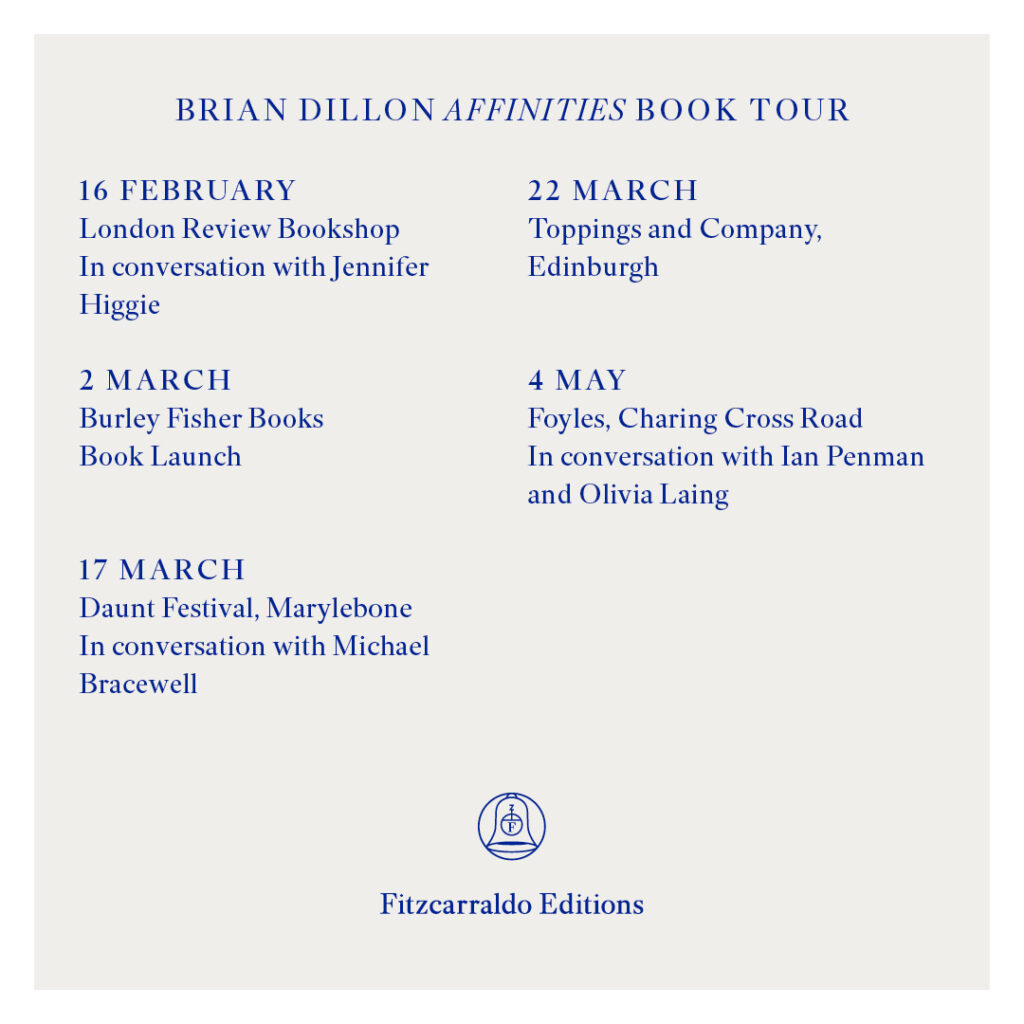
16 February – In conversation with Jennifer Higgie at the London Review Bookshop
2 March – Book launch at Burley Fisher Books, London
17 March – In conversation with Michael Bracewell, Daunt Festival, Daunt Marylebone
22 March – At Toppings & Company, Edinburgh
4 May – In conversation with Ian Penman and Olivia Laing at Foyles, Charing Cross Road. Link tk.
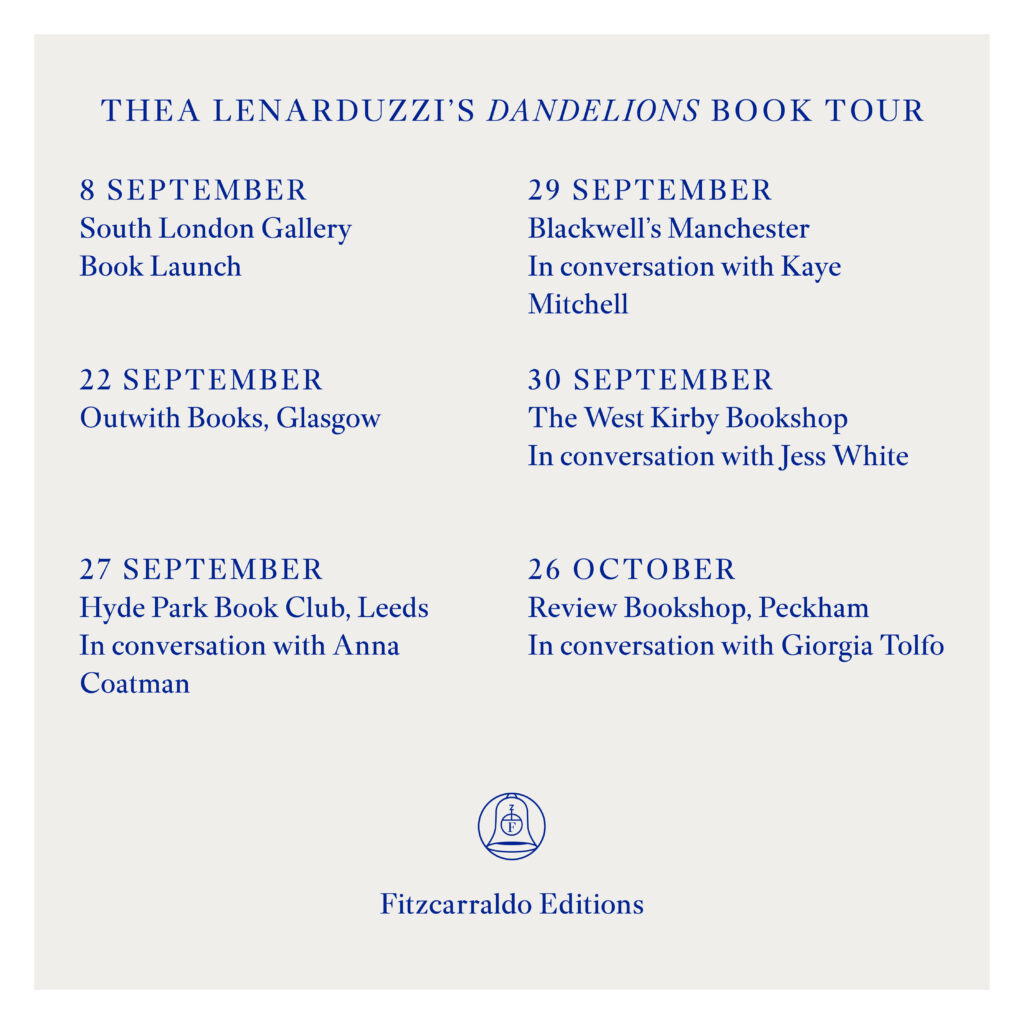
8 September – Dandelions Book Launch at the South London Gallery, Peckham. Please RSVP to clare@fitzcarraldoeditions.com.
22 September – At Outwith Books, Glasgow.
27 September – In conversation with Anna Coatman at Hyde Park Book Club, Leeds.
29 September – In conversation with Kaye Mitchell at Blackwell’s Manchester.
30 September – In conversation with Jess White at the West Kirby Bookshop, the Wirral. Please email hello@thewestkirbybookshop.com to book your tickets.
26 October – In conversation with Giorgia Tolfo at Review Bookshop, Peckham.

Bookshops accepting pre-orders for Rombo.
London
Bristol
Scotland
U.K. – Nationwide
Ireland
To celebrate Independent Bookshop week, we asked some of our authors what their favourite independent bookshops are:
Daisy Hildyard, Interesting Books
Interesting Books is a small space on a narrow street in the far north of England, not far from the border with Scotland. It’s in a town, not a city. The range of books is considered, mostly contemporary publishing from interesting independent presses: whoever chooses the books there clearly loves to read. When I went in, the man behind the desk was chatting with the other customers, it felt welcoming.
Vanessa Onwuemezi, Brick Lane Books
Brick Lane Books has a unique selection of literature within which I always find something to surprise me. And now the staff there run an increasingly important short story prize. It’s in a part of London close to my heart, as I spent some of my teenage years on Brick Lane while there was still a music scene there, rubbing shoulders with my favorite musicians and yet to discover new ones.
Joanna Pocock, The Broadway Bookshop
Walking into The Broadway Bookshop in Hackney is an inoculation against the world of algorithms, against the power of faceless AI and Big Tech that dictates ‘if you liked that, then you might like this’. Independent bookshops are part of the landscape that allows for a healthy literary ecosystem. I have lost track of the number of books I have read and loved that have been recommended to me by Tom or Janie or any of the people working in The Broadway Bookshop. I visit as much for the books as I do for the conversations I have with the people who work there. My life would be so much poorer without it.
Katharina Volckmer, Lutyens & Rubinstein
My favourite indie bookshop is Lutyens & Rubinstein. I feel a rush of solidarity every time I see the name which must get misspelled just as often as my own. It’s the bookshop that’s closest to my work and I love going there during my lunch breaks, stare at new covers and fantasise about a life that could be spent just reading books. And I also love listening to Claire’s very honest opinions about the latest publications which helps me manage my own unmanageable reading list.
Indie Twinning Week, Toppings & Company Booksellers of Edinburgh
For indie twinning week we are delighted to partner with Toppings & Company Booksellers of Edinburgh. This beautiful bookshop, housed in a William Playfair building, holds a wonderfully varied selection of fiction and non-fiction. The booksellers are knowledgeable and passionate – you are bound to leave the shop with a book you didn’t know you wanted.
All the independent bookshops listed on this page are open for online orders.
International retailers accepting orders of The Naked Don’t Fear The Water
India:
Singapore:
Thailand:
France:
Paris:
Spain:
Ireland:
Brussels:
Antwerp:
Ljubljana:
Croatia:
Prague:
Sweden:
Lithuania:
Germany:
Amsterdam:
Upsalla, The Uppsala English Bookshop
Stockholm:
Soderbokhandeln Hansson & Bruce
Australia:
Aotearoa New Zealand:
